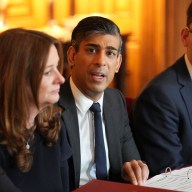The success of a one-man show, or a one-woman show for that matter, can often depend on a certain sense of self-awareness, or engaging members of the audience to make them part of the proceedings. When it works, it can be theatrical magic.
When it doesn’t … heck, it looks lonely up there.
Randy Rutherford’s Weaverville Waltz is a childhood reminiscence of unrequited love and a troubled home life interspersed with snippets of song — one of Rutherford’s award-winning trademarks.
It’s hard not to like Rutherford as a performer; he’s got an easy charm and a gift for creating nuanced characters. But as a play, Weaverville Waltz is one slow dance.
The play’s young protagonist, Randy, suffers humility at the hands of school bullies and a drunken stepfather, but by the play’s end it’s hard to discern exactly how those experiences shaped his adult life. And because it took so long to get there, I sort of stopped caring.
The Waltz is at least 20 minutes too long.
More successful is The Further Adventures of Antoine Feval, actor Chris Gibbs’ comedic take on the Sherlock Holmes mythos (this may whet the appetite for those waiting expectantly for Robert Downey Jr.s’ upcoming big-screen turn as Holmes).
In the show, Gibbs takes on the role of Barnaby, a Watson-like sidekick to the titular London master sleuth Feval. Together, they must stop a conspiracy to take over the British Empire, i.e. the world. It’s grandiose, but the fact is that I can scarcely remember the plot; it strikes me that Gibbs may well make it up as he goes along from show to show anyway.
On the shoulders of a lesser actor, that lack of plotting could be painful to watch, but Gibbs only splits sides. He keeps things rolling, glossing over the details in favour of adlibbing or playing off the audience.
His rapid-fire dry wit and deadpan delivery make you forgive, and forget, that there was a story in the first place.
















